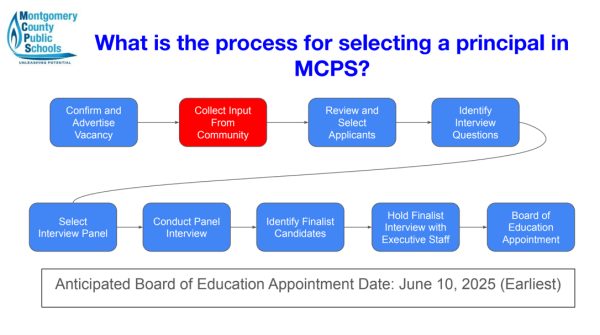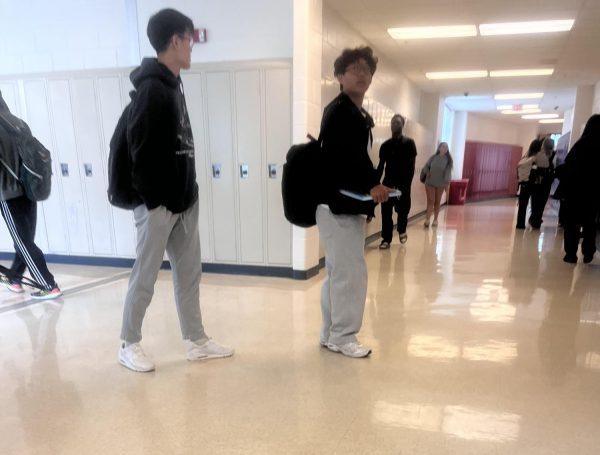Bill proposed to remove police officers from Montgomery County Public Schools

Photo used with permission from Google Commons
According to the ACLU, Black students make up 31 percent of school-related arrests and are three times more likely to be suspended or expelled compared to caucasian students.
On Nov. 17, two Montgomery County lawmakers proposed a bill to remove police officers from public high schools.
Bill 46-20, introduced by Council members Will Jawando (D-At Large) and Hans Riemer (D-At Large) would prohibit the implementation of school resource officers (SRO), or armed law enforcement officers, that are currently in every MCPS high school and several middle schools. With the goal of racial equity and social justice, Jawando and Riemer’s memorandum notes that “Black students are 320% more likely to be incarcerated at the conclusion of their trial than white students.”
Moreover, statistics from the Office of Legislative Oversight’s The School-to-Prison Pipeline Report, indicate that Black and Latinx students are incarcerated in greater proportion to their population. In 2015, the report found that 50 percent of all school removals were made of Black children who only represent one-fifth of Montgomery County’s school enrollment. After removal, Black students were nearly 20 times more likely to be held by the Department of Juvenile Services for pretrial detainment regarding misdemeanor offenses than their caucasian peers. After detainment, Black students were 85 percent less likely to be referred to a substance abuse and mental health program compared to other races.
This raises serious concerns regarding the school-to-prison pipeline, or the disproportionate tendencies of students from disadvantaged backgrounds to become incarcerated due to harsh school and district policies. These policies include exclusionary practices, such as zero-tolerance policies, which subject individuals to immediate disciplinary action, including suspension and referral to law enforcement.
The school-to-prison pipeline system extends beyond our county and is a national issue as well. According to the ACLU, Black students make up 31 percent of school-related arrests and are three times more likely to be suspended or expelled compared to caucasian students. In general, students who have been suspended or expelled are three times as likely to be in contact with a juvenile justice system the next year, which is why the pipeline is incredibly harmful; due to a lack of resources, students often can fall into a dangerous pattern of recidivism.
Senior Aashna Singh believes that the change in school policing should be made. “It has been proved time and time again that when school administration has the ability to just refer a student to law-enforcement, it does nothing to keep students or school safe, disproportionately affects students of color, and emboldens the school-to-prison pipeline. In MCPS’ interest, the money saved from taking police out of schools could be redirected toward mental health services and preventative measures that keep schools safe — instead of reactionary measures,” Singh said.
The bill intends to remove the SRO program from MCPS and their appropriations, which would amount to approximately saving $3 million annually. In the memorandum, Jawando and Riemer state that these saving would be allocated to three programs: 1) An after school service hub model, which aims to reduce risk factors through the Montgomery County Collaboration Council, 2) A recreational therapeutic group activities for students, and 3) restorative justice training for MCPS educators and staff.
A public hearing regarding Bill 46-20 is scheduled for Jan. 12.
Your donation will support the student journalists of Thomas S. Wootton High School. Your contribution will allow us to purchase equipment and cover our annual website hosting costs.
Christina Liu is a 2021 graduate.






